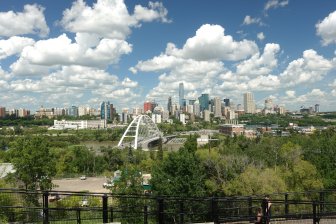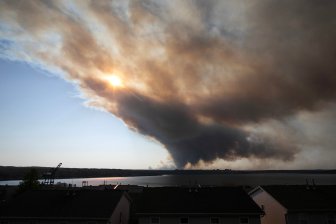Saskatoon groups and school boards are speaking out following consistent pushback surrounding the topic of gender and sexual diversity being taught in schools.

“There is a lot of fear from parents based on stereotypes and stigma and discrimination and they think that when we come in that we are just going to be wild and in and saying you better be gay because that’s the cool thing,” said Jessica Fisher, gender-based violence education coordinator at OutSaskatoon.
In recent months, Saskatoon has seen social media heat surrounding the use of public changerooms by the 2SLGBTQ+ community and a school board’s decision to suggest restricted access to an inclusive children’s event.
“When you look at the makeup of our society, there is not just two ways of existing,” said Jessica Fisher, gender-based violence education coordinator at OutSaskatoon.
“We know that our society is diverse in culture and religion and belief systems and ways of identifying and when we talk about the different ways that people can exist in the world, it gives permission for young people to be who they are and not fear being different from others around them.”
Fisher was formerly a school-based educator for Kindergarten to Grade 12.
She said after every presentation she did, regardless of the grade, a student would approach her with gratitude.
“Thank you, I understand who I am now,” she said students have said to her.
“Thank you, I know how to support my trans friend now.”
“Thank you, I feel like I can probably go home and talk to my family now.”
“I feel seen, I feel validated.”

Saskatchewan schools are required to follow a curriculum set forth by the province’s Ministry of Education. It includes discussions surrounding gender and sexual diversity.
“It is in childhood where we start developing our sense of self,” Fisher said.
She noted that when speaking in schools, conversations had with children in lower grades were much different than high school-aged students.
“When you are having a conversation with a Grade 1 student and you are talking about families, how some families have a mom and a dad, some families have a grandma, some families have two dads, some have many aunties,” she said, “we remove the shame that is associated, and the stigma that is associated with existing outside of the norm.
“We allow children space to breathe and be curious.”
They noted the rise in hate against drag storytime where drag performers read age-appropriate books to children.
“They are not doing anything explicit; they are not doing anything sexual; they are just dressed up in a costume, in their artistry and just sharing acceptance and love and creativity with young people.”
Fisher grew up in Martensville, Sask., and said diversity teachings have progressed since she was a student but there is still enormous backlash.
“Any mention of the queer community was always negative and it took me until university to have access to language and information and people who weren’t shaming diversity to know better how I identify,” Fisher said.
“When it comes to who people love, there is a little bit more acceptance and tolerance about people being gay or lesbian or bisexual but when it comes to gender identity, we as a society are still deeply attached to this idea that the binary of man and woman is the only way allowed to exist.”
She noted the pushback usually comes a policy or piece of legislation is made in favour of the 2SLGBTQ+ community.
Saskatoon Public Schools said they teach gender inclusivity for the same reasons they teach students about other cultures.
“That’s why we also talk about equity and integrate Indigenous knowledge in the classroom and through experiential learning,” the statement read. “It’s why we discuss different cultures, ethnicities and histories to be as inclusive as possible and so that our students have a broader understanding of the world.”
In a statement to Global News, the division claimed their staff has faced harassment over the topic and declined to an interview to prevent further targeting.
Saskatchewan Teachers’ Federation President Samantha Becotte said she has seen teachers make an effort to support all students by allowing them to be critical but respectful in classrooms.
“Teachers are not pushing an agenda, they are looking at what we are seeing in society and talking about it,” Becotte said.
She said the topics need to be discussed both in schools and between children and their families.
“Schools are like a mini-society and we can challenge people’s perspectives, have critical conversation in the classrooms and have diverse opinions and come to a good path forward for everyone,” said Becotte. “It doesn’t mean it shouldn’t happen at home as well.”
In an emailed statement to Global News, the Government of Saskatchewan said they are “committed to ensuring that all students, including those who identify as gender and sexually diverse, feel safe, protected and respected in our schools and communities. Ensuring everyone has access to a safe, welcoming and inclusive learning environment is a priority in our provincial education plan.”
In terms of sexual health education, Saskatoon Sexual Health coordinator and educator Delilah Kamuhanda said there are major gaps in the curriculum concerning 2SLGBTQ+ students.
“When it comes to the sexual health curriculum in Saskatchewan, there is no real queer inclusivity in that,” said Kamuhanda.
“The way I approach it is I am going to make sure everyone has what they need to be safe and healthy and that means that queer, trans, non-binary students feel like they are getting information that they can take away from this because often times what they are getting is information that is very much within heteronormative and cis-normative lenses.
She also noted that the province’s sexual health curriculum does not include direct attention to consent or healthy sexual relationships within the digital age.




Comments